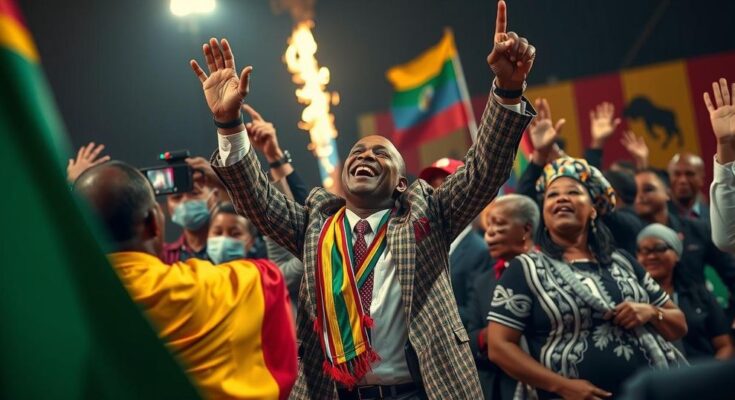Namibia’s Vice-President Netumbo Nandi-Ndaitwah has won the presidential election with 57.31 percent of the votes, becoming the country’s first female president. However, the main opposition party, IPC, plans to contest the results, alleging irregularities during the election, which faced significant logistical issues and long voter wait times.
Namibia’s Vice-President, Netumbo Nandi-Ndaitwah, representing the ruling South West Africa People’s Organisation (SWAPO), has been declared the winner of the presidential elections held last week, garnering 57.31 percent of the votes, according to the election commission’s announcement on Tuesday. The main opposition candidate, Panduleni Itula from the Independent Patriots for Change (IPC), received 25.5 percent of the vote. At 72 years of age, Nandi-Ndaitwah will make history as the first female leader of Namibia, a nation rich in mineral resources and governed by SWAPO since it gained independence in 1990.
However, the IPC has announced its intention not to acknowledge the election results, citing numerous irregularities throughout the election process. The elections, which took place on November 27, faced significant logistical and technical challenges, including a shortage of ballot papers, resulting in long queues and extended voting periods. Many voters, frustrated by the prolonged wait—some standing in line for up to 12 hours—abandoned the polling stations on the first day of voting.
The ruling SWAPO party has been the dominant political force in Namibia since the country attained independence from South African rule in 1990. The recent presidential election was marked by controversy as irregularities were reported, leading to claims of illegitimacy from opposition parties. Nandi-Ndaitwah’s victory is notable not only for her gender, being the first woman to hold the presidency, but also in highlighting the contentious political landscape currently facing Namibia as opposition parties dispute the electoral process and outcomes. The logistical issues encountered during the voting period underscore systemic challenges within the electoral framework of the country.
In conclusion, Netumbo Nandi-Ndaitwah’s election as Namibia’s first female president represents a significant milestone in the nation’s political history. However, the electoral process has been marred by controversy, with the opposition IPC expressing strong dissent regarding the validity of the results. The challenges of the election logistics reflect ongoing concerns about the electoral integrity in Namibia, which may shape the political discourse in the future as the opposition contests the election outcomes.
Original Source: www.barrons.com




